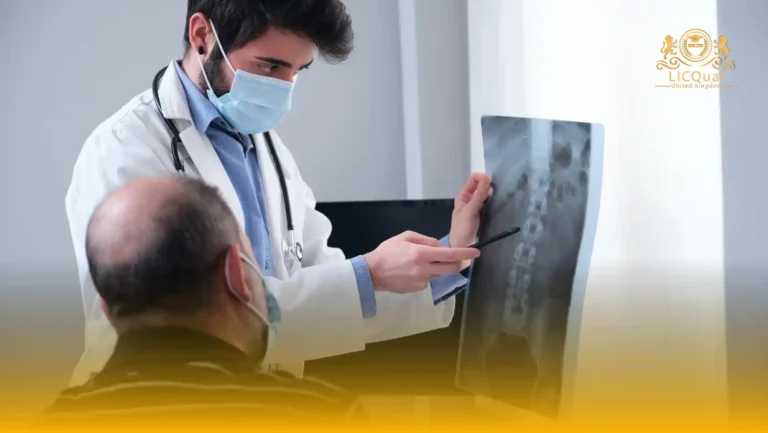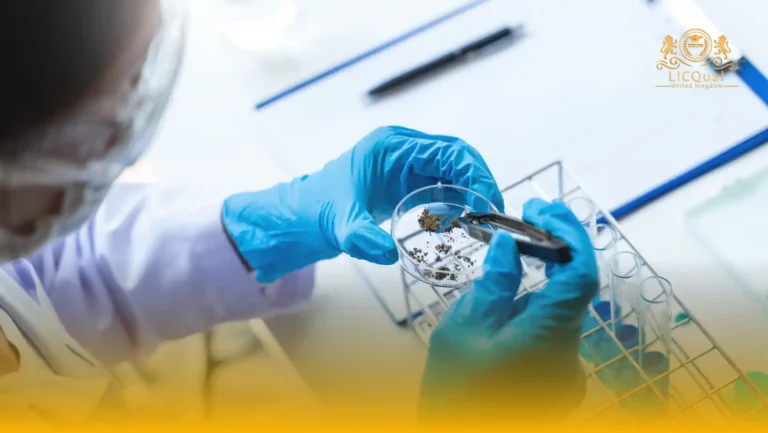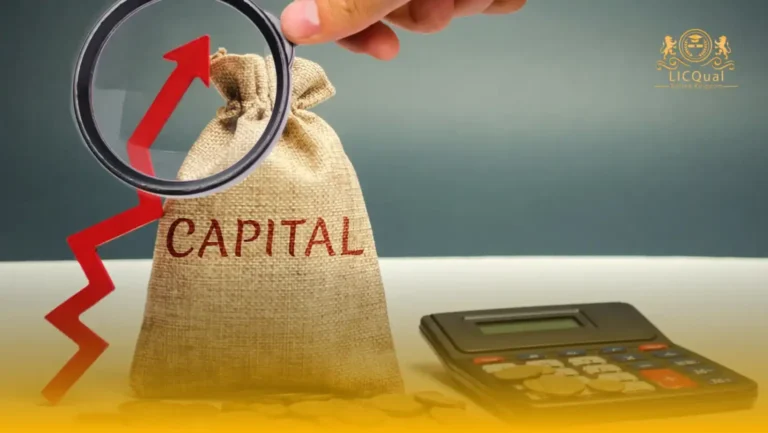The LICQual Level 3 Diploma in Pharmacy Education (Dip Pharmacy Education) is a specialised qualification designed to support professionals who wish to advance their knowledge and skills in pharmacy teaching and learning. This programme provides learners with the essential foundations of educational practice, enabling them to contribute effectively to the training and development of future pharmacy professionals. By combining theoretical knowledge with practical application, the diploma equips learners to design, deliver, and evaluate pharmacy education at a high standard.
This qualification is ideal for those aiming to enhance their career prospects, strengthen their professional profile, and expand their expertise in pharmacy education. It also supports Continuing Professional Development (CPD), ensuring learners remain up to date with current teaching methodologies, assessment strategies, and innovations in the pharmacy sector.
Centres delivering the LICQual Level 3 Diploma in Pharmacy Education are required to maintain strict quality standards. They must employ competent and qualified staff and provide access to all necessary materials, learning resources, and teaching facilities. This guarantees that learners benefit from a structured, supportive, and high-quality learning experience that enables them to achieve academic success and professional growth.
With its focus on educational excellence and professional development, this diploma serves as a valuable pathway for those committed to advancing pharmacy education and contributing meaningfully to the wider healthcare and pharmaceutical fields.
Course Overview
Qualification Title
LICQual Level 3 Diploma in Pharmacy Education (Dip Pharmacy Education)
Total Units
6
Total Credits
60
GLH
240
Qualification #
LICQ2201184
Qualification Specification
To enroll in the LICQual Level 3 Diploma in Pharmacy Education (Dip Pharmacy Education), applicants must meet the following criteria:
|
Qualification# |
Unit Title |
Credits |
GLH |
|---|---|---|---|
|
LICQ2201184-1 |
Foundations of Pharmacy Education |
10 |
40 |
|
LICQ2201184-2 |
Teaching, Learning, and Assessment in Pharmacy Practice |
10 |
40 |
|
LICQ2201184-3 |
Curriculum Design and Development in Pharmacy Education |
10 |
40 |
|
LICQ2201184-4 |
Educational Leadership and Professional Practice |
10 |
40 |
|
LICQ2201184-5 |
Technology-Enhanced Learning in Pharmacy |
10 |
40 |
|
LICQ2201184-6 |
Research Methods and Evidence-Based Practice in Pharmacy Education |
10 |
40 |
By the end of this course, learners will be able to:
Unit 1: Foundations of Pharmacy Education
By the end of this unit, learners will be able to:
- Explain the principles and importance of pharmacy education in professional practice.
- Identify the roles and responsibilities of pharmacy educators in different settings.
- Analyse the relationship between pharmacy education and healthcare outcomes.
- Apply foundational concepts of educational theory to pharmacy teaching.
Unit 2: Teaching, Learning, and Assessment in Pharmacy Practice
By the end of this unit, learners will be able to:
- Describe key theories of teaching and learning relevant to pharmacy education.
- Select and apply effective teaching strategies to engage diverse learners.
- Design appropriate assessment methods to evaluate learner progress.
- Reflect on the effectiveness of teaching and assessment practices.
Unit 3: Curriculum Design and Development in Pharmacy Education
By the end of this unit, learners will be able to:
- Explain the principles of curriculum design and educational planning.
- Develop learning outcomes that align with professional and clinical standards.
- Construct a curriculum framework suitable for pharmacy education.
- Evaluate curriculum models in relation to learner needs and industry demands.
Unit 4: Educational Leadership and Professional Practice
By the end of this unit, learners will be able to:
- Demonstrate an understanding of leadership theories in education.
- Apply ethical and professional standards within pharmacy education.
- Critically assess the role of leadership in enhancing teaching and learning quality.
- Develop strategies to promote professional practice and collaborative teamwork.
Unit 5: Technology-Enhanced Learning in Pharmacy
By the end of this unit, learners will be able to:
- Explain the role of digital technologies in supporting pharmacy education.
- Use e-learning platforms and online tools to deliver effective teaching.
- Evaluate the benefits and challenges of technology-enhanced learning.
- Integrate innovative digital resources into pharmacy training programmes.
Unit 6: Research Methods and Evidence-Based Practice in Pharmacy Education
By the end of this unit, learners will be able to:
- Demonstrate understanding of research methodologies relevant to education.
- Critically evaluate published studies in pharmacy and healthcare education.
- Apply evidence-based approaches to improve teaching and learning practice.
- Design and present a small-scale research proposal or project in pharmacy education.
The LICQual Level 3 Diploma in Pharmacy Education (Dip Pharmacy Education) is designed for professionals and students who want to build expertise in teaching, training, and curriculum development within pharmacy and healthcare. This internationally accredited qualification is ideal for pharmacists, healthcare educators, academic trainers, and aspiring professionals who aim to strengthen their skills in pharmacy education. With flexible online study and global recognition, it is perfect for anyone seeking career advancement, credibility, and practical teaching skills in pharmacy education.
1. Practicing Pharmacists
- Gain advanced knowledge of pharmacy education and training methodologies
- Strengthen compliance with healthcare teaching standards and patient safety protocols
- Enhance credibility with an internationally recognized qualification
- Prepare for leadership roles in pharmacy education and healthcare training
- Stay updated with evolving educational practices and global healthcare trends
2. Pharmacy Students and Graduates
- Build a strong foundation in pharmacy education before entering the workforce
- Improve employability with a Level 3 diploma UK recognized
- Learn practical applications of teaching and curriculum design in pharmacy
- Gain confidence in delivering pharmacy education programs
- Add a career‑ready certification to your academic portfolio
3. Healthcare Professionals
- Understand pharmacy education across diverse healthcare settings
- Strengthen skills in evidence‑based teaching and training delivery
- Expand career opportunities with international accreditation
- Apply educational principles in multidisciplinary healthcare teams
- Improve patient trust through effective healthcare education
4. Academic and Training Professionals
- Deepen expertise in pharmacy education and curriculum development
- Strengthen EEAT compliance in educational content delivery
- Gain practical tools for designing and evaluating pharmacy training programs
- Improve career advancement opportunities in academia and healthcare education
- Enhance credibility with a specialized diploma in pharmacy education
5. International Candidates
- Earn a globally recognized pharmacy education qualification
- Access flexible online study from anywhere in the world
- Meet international accreditation standards for healthcare education
- Strengthen career prospects in diverse healthcare markets
- Gain cross‑border knowledge of pharmacy education practices
6. Regulatory and Compliance Officers
- Deepen expertise in pharmacy education standards and governance
- Strengthen oversight of ethical and professional teaching practices
- Gain practical tools for monitoring and evaluating educational programs
- Improve career advancement opportunities in compliance and regulation
- Enhance credibility with a specialized diploma in pharmacy education
7. Career Changers and Aspiring Professionals
- Transition into pharmacy or healthcare education with a recognized qualification
- Gain essential knowledge of pharmacy teaching and training for new roles
- Build credibility in healthcare through accredited certification
- Learn practical skills for curriculum design and evidence‑based teaching
- Open doors to career opportunities in pharmacy, academia, and healthcare sectors
Centres delivering the LICQual Level 3 Diploma in Pharmacy Education (Dip Pharmacy Education) must meet strict standards to ensure high-quality learning and professional outcomes for every learner. The following requirements are essential:
- Qualified Staff: Centres must employ experienced and competent tutors with a background in pharmacy, healthcare, or education, capable of delivering teaching and assessment to a professional standard.
- Learning Resources: Centres should provide access to comprehensive study materials, digital learning tools, and educational resources that support effective teaching and learner success.
- Teaching Facilities: Suitable classrooms, training environments, and e-learning platforms must be available to deliver both theoretical and practical elements of the programme.
- Assessment Systems: Centres must establish robust and transparent assessment procedures to evaluate learner performance fairly and consistently.
- Learner Support: Effective academic guidance, mentoring, and CPD support should be in place to help learners achieve their goals.
- Quality Assurance: Centres are required to follow quality assurance policies and procedures to maintain consistency, compliance, and international standards of delivery.
- Technology Access: Learners should have access to modern educational technologies, including online platforms, virtual learning environments, and digital tools for teaching and assessment.
- Compliance: All centres must operate in line with LICQual regulations and framework, ensuring credibility, reliability, and learner satisfaction.
By meeting these requirements, centres can provide a high-quality, learner-focused educational experience, preparing learners to succeed in pharmacy education and contribute meaningfully to the healthcare and pharmaceutical sectors.
Assessment and Verification
All units within this qualification are subject to internal assessment by the approved centre and external verification by LICQual. The qualification follows a criterion-referenced assessment approach, ensuring that learners meet all specified learning outcomes.
To achieve a ‘Pass’ in any unit, learners must provide valid, sufficient, and authentic evidence demonstrating their attainment of all learning outcomes and compliance with the prescribed assessment criteria. The Assessor is responsible for evaluating the evidence and determining whether the learner has successfully met the required standards.
Assessors must maintain a clear and comprehensive audit trail, documenting the basis for their assessment decisions to ensure transparency, consistency, and compliance with quality assurance requirements.







